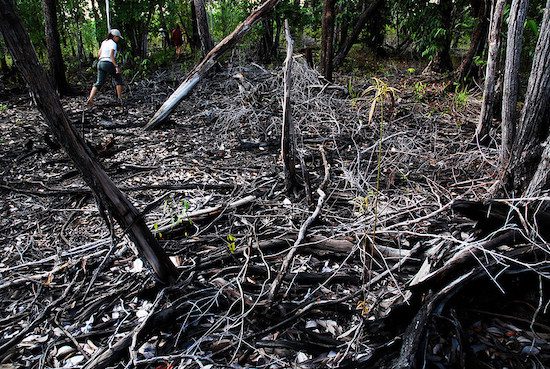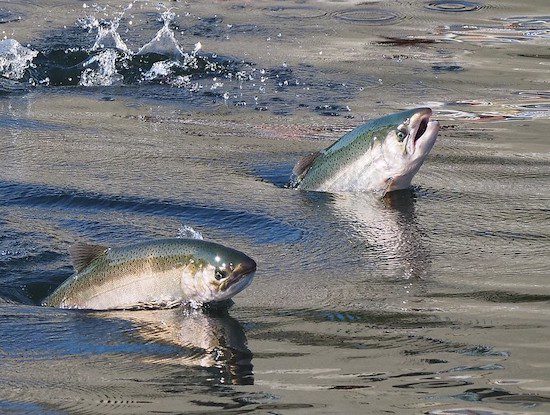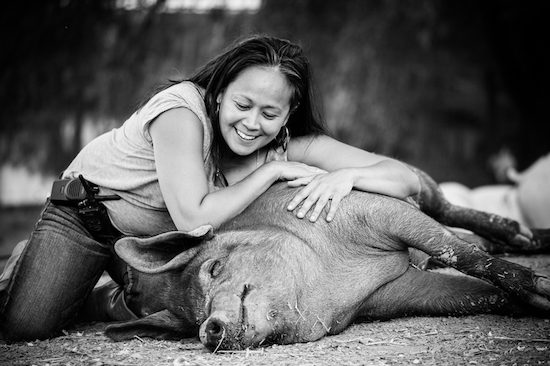


Rainforest Rescue: Unilever’s “sustainable palm oil” is an empty promise. Its palm oil supplier, Wilmar, is destroying one of the largest mangrove forests in Indonesia—and this is only one of many such cases. Tell Unilever to get palm oil out of its products and stop profiting from the destruction of nature. Unilever’s brands “are used by 2.5 billion people every day,” as the consumer-goods giant proclaims on its website. The key raw material for products such as Dove, Flora and Ponds: palm oil. Rainforests are being destroyed and people driven from their land to produce this cheap tropical vegetable oil. Unilever claims to use “sustainable” palm oil. Yet the grim reality is that Unilever’s supplier Wilmar buys palm oil that was produced on recently cleared rainforest land. Rainforest Rescue’s Indonesian partners have uncovered one of many instances of destruction and violence for palm oil currently taking place: Kubu Raya district is located on the west coast of Borneo, a remote dream landscape where mangrove forests line the rivers and coastline and proboscis monkeys come to greet the rare boats. Its mangrove and peat swamp forests are among the most extensive and biodiverse in Indonesia. Yet the beauty of nature does not stop businessmen looking to make a quick profit, and oil palm plantations are pushing into Kubu Raya. PT Sintang Raya has a brutal business mode—the palm oil company considers itself above the law, terrorizing local people and flattening mangrove forests for its plantations. PT Sintang Raya is one of the producers that supplies oil to Wilmar, the world’s largest palm oil trader, which sells it to companies like Unilever. The Leuser Ecosystem on Sumatra—the last place on the planet where elephants, rhinoceros, tigers and orangutans share a habitat—is also impacted: According to a Rainforest Action Network investigation, Wilmar is selling palm oil produced on freshly cleared rainforest land to various multinationals, including Unilever.
>>>Urge Unilever to eliminate palm oil from their products and get rainforest destruction out of their supply chain.
Environmental Working Group: Tests conducted by the Environmental Working Group have found shockingly high levels of cancer-linked glyphosate in popular PepsiCo products like Quaker Oats and Sabra Hummus. The International Agency for Research on Cancer, a part of the World Health Organization, and California state scientists agree that glyphosate is linked to cancer, but Monsanto, now owned by Bayer, has led a misinformation campaign to cover up any evidence linking glyphosate to cancer. Glyphosate is the key ingredient in Bayer-Monsanto’s signature herbicide Roundup, the most widely used pesticide in the U.S. Despite their claims that glyphosate is safe, Bayer recently agreed to pay $10 billion in a settlement over claims Roundup causes cancer in people. But PepsiCo continues to allow this dangerous chemical in their food. This is unacceptable. Consumers and parents shouldn’t have to worry about cancer-linked pesticides in food.
>>>Urge PepsiCo to get cancer-linked glyphosate out of popular foods like Sabra Hummus and Quaker Oats.
Care2: The Tennessee legislature is considering an important animal rights bill, HB 1643, that would prevent convicted animal abusers from owning a companion animal for at least two years after their conviction. Introduced by Rep. Darren Jernigan (D-60), the bill would also authorize courts to impose a lifetime ban against ownership of a companion animal by anyone convicted of animal cruelty, including animal abuse, animal fighting and bestiality. “Tennessee lawmakers have remained focused on curbing animal abuse in the state,” reports NBC News, noting that in 2016, the state became the first in the nation to formally establish an animal abuse registry to track residents convicted of aggravated animal cruelty.
>>>Urge the Tennessee State Legislature to pass HB 1643 to give animals the protection they deserve.
Cause for concern…

“Sixty per cent of studied fish species will be unable to survive in their current ranges by 2100 if climate warming reaches a worst-case scenario of 4-5C (7.2-9F) above pre-industrial temperatures, researchers have found,” reports Valerie Yurk for the Guardian.
- 60% of fish species could be unable to survive in current areas by 2100(Valerie Yurk, The Guardian)
- Sea turns red as 250 whales slaughtered in Faroe Islands as part of annual ritual (Jess Hardiman, LADbible)
- Trump’s EPA scales back requirements for pesticide testing on fish (Sylvia Carignan, Bloomberg Law)
- Florida’s harmful algal blooms produce multiple toxins detrimental to human health (Brain Chemistry Labs, Phys.org)
- Brazil’s soy exports to European Union tainted by illegal deforestation(Global Canopy)
- Children exposed to Deepwater Horizon oil spill suffered physical, mental health effects (Earth Institute at Columbia University, ScienceDaily)
- Shocking video exposes ‘deeply disturbing’ abuse of cows and sheep for leather trade (Totally Vegan Buzz)
- Heat stress: The climate is putting European forests under sustained pressure(University of Basel, Environmental News Network)
- Global methane emissions soar to record high (Stanford’s School of Earth, Energy & Environmental Sciences)
- World’s e-Waste ‘unsustainable,’ warns UN report citing China, India and United States (Neha Arora and Emma Farge, Reuters)
- Climate change: Heavy rain after drought may cause fish kills (University of Southern Denmark, ScienceDaily)
Round of applause…

- Post COVID-19, let’s forge a new normal for farmed animals (Karen Estensen Rubio, Sentient Media)
- 20 states sue EPA over weakened justification for power plant rule (Rachel Frazin, The Hill)
- One of the worst states for animal protection passes law to crack down on cruelty (In Defense of Animals)
- Over 100 dogs were saved from dog meat farms in South Korea—now they’re up for adoption (Min Ji Koo, VICE)
- Like humans, beluga whales form social networks beyond family ties(Florida Atlantic University, ScienceDaily)
- Uniqlo bans alpaca wool from clothing (Chris Remington, Ecotextile News)
- Having a dog makes toddlers more considerate to people, study finds (Jane Wolfe, Lady Freethinker)
- Vegan population grows threefold as plant-based market booms in South Korea (Totally Vegan Buzz)
- Pandemic has “accelerated” vegan trend, says new research (Speciality Food)
- Former Chicago meatpacking plant hosts vegan farmers market (Anna Starostinetskaya, VegNews)
Parting thought…

“It is a wholesome and necessary thing for us to turn again to the earth and in the contemplation of her beauties to know the sense of wonder and humility.” —Rachel Carson
Earth | Food | Life (EFL) explores the critical and often interconnected issues facing the climate/environment, food/agriculture and nature/animal rights, and champions action; specifically, how responsible citizens, voters and consumers can help put society on an ethical path of sustainability that respects the rights of all species who call this planet home. EFL emphasizes the idea that everything is connected, so every decision matters.
Click here to support the work of EFL and the Independent Media Institute.
Questions, comments, suggestions, submissions? Contact EFL editor Reynard Loki at [email protected]. Follow EFL on Twitter @EarthFoodLife.